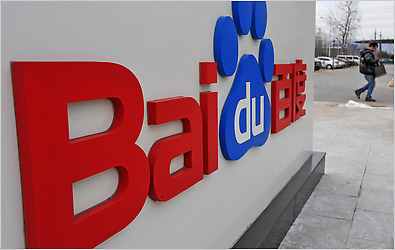Since my last article in November (Content Unlocking Exposed), the content locking industry has seen explosive growth and further recognition by advertisers as a profitable channel to generate leads, and by publishers as a viable option to monetize their premium content. The end result is that both publishers and advertisers have been able to generate increasingly high ROIs in comparison to (or in conjunction with) traditional marketing channels.
Publishers are often asking how to maximize earning potential with content locking. In most cases, they are only looking into the short term and are at times willing to forgo end user satisfaction for more ad revenues. However, I have asserted this many times before and firmly believe that the true earning potential of content locking can be achieved by focusing on:
1) Seamless integration
It is imperative that publishers choose the content locking integration that is best suited for their premium content. The right integration will be seamless for the end user and thus decrease bounce rate, increase end user response rate, increase end user satisfaction, and ultimately increase revenues generated. At Adscend Media, we provide the standard overlay content locking tool, a hosted file/link locking tool, and a robust API that allows complete customization for advanced publishers with basic programming knowledge. After selecting the tool that will best fit your premium content, it is important to make full use of the available customization options to make the content locking integration as seamless as possible with the premium content. It’s important to use customized background images, relevant header text, to optimize other available options, and optionally to select the highest EPC offers that are relevant to your site audience.
Example: An indie artist with a website to share and sell their music could integrate content locking by adding an alternative to their purchase button. The alternative button (which could state something like “Download for Free*” with a disclaimer underneath noting it requires an offer completion and other relevant disclaimers) will load up the Adscend Media robust API customized to have the same look and feel as the website. This will allow the artist to introduce an additional revenue stream without affecting the current revenue streams, and the fans will feel more comfortable exploring the new option if they are interested.
2) Slowly introducing the tool to the audience
Publishers who are looking to introduce content locking on their websites should introduce the tool slowly to assess the impact it has on their audience. The goal is to be as minimally invasive as possible of the end user experience. This involves assessing your typical users and how they would respond to the content locking tool, including at different integration points. Split testing various integration points is a way to determine what your site audience responds to best. If possible, I always recommend that publishers introduce the tool to the major countries first to assess the performance. Remember, some international countries have no offers, or offers that are not satisfactory for some end users. In those cases, it may be best to introduce the content locking tool to users from specified countries.
Example: The same indie artist in the first example could explore integrating the content locking tool at different points on the website. In the beginning stages, the tool can be introduced as a promotional pop up to gather and assess user feedback before introducing it as a permanent feature. The tool can be introduced in the major countries first, such as the United States, United Kingdom, Australia, and Canada. As feedback is received, the indie artist can assess whether to introduce additional countries. After some testing, the indie artist may decide to limit the tool to certain countries where it performs best to ensure user experience in a country with limited offer/survey choices is unaffected.
3) Provide content that creates value for the end user
Content is vastly different and some content is a better fit for the content locking tool than others. It is very important for publishers to provide the end user valuable content to ensure they keep coming back for more. There is a higher likelihood that users will come back for additional content if the quality of the content provided is high.
Here is a brief list of ideas/content that may work well with content locking:
– Mobile apps (both allowing users to download apps for completing a survey & in app monetization)
– Instructional videos (e.g. specific guitar lessons)
– Virtual worlds (items/currency)
– Font site, wallpapers, Windows themes
– Guitar tabs, bass tabs, sheet music, etc.
– Music – if you own the rights, you can lock it! Indie bands can offer songs for free and fans can support their artists by downloading. Also makes a good Donate alternative
– Templates: web, flash, WordPress, forum, etc.
– File conversion sites (doc/docx, PDF, keep it legit)
– Graphics: icons, stock photos/images, textures
– Software downloads or in software monetization
– Games (online/flash, freeware, items/currency)
– How-to sites similar to eHow or Instructables
– Code, plugins (forum, etc.), browser add-ons, royalty free sounds
– House plans, blueprints, etc
– Online shopping carts – as ‘payment’ method / free shipping / discounts
– Free blurays, movie tickets, CDs/iTunes, books/Amazon cards, photo prints
– Ebooks
Although it is easier for publishers to simply add the content locking tool as-is to their websites, taking an approach that considers the site audience will maximize the earning potential for publishers in the long term.























